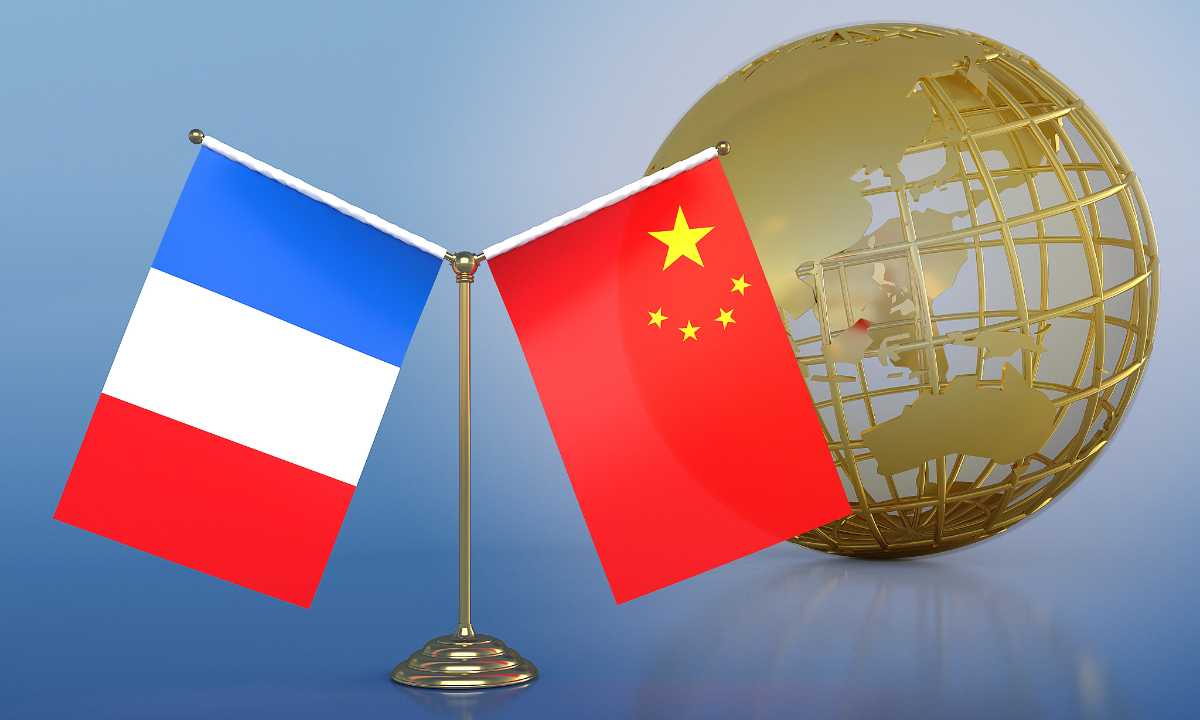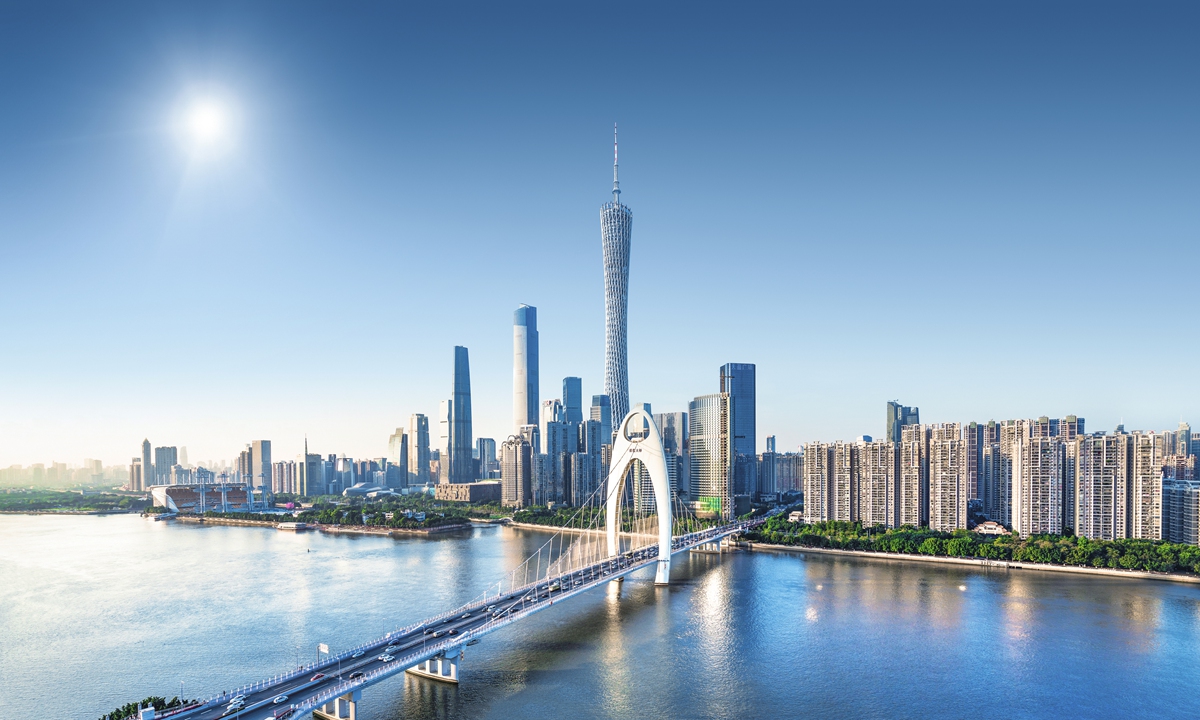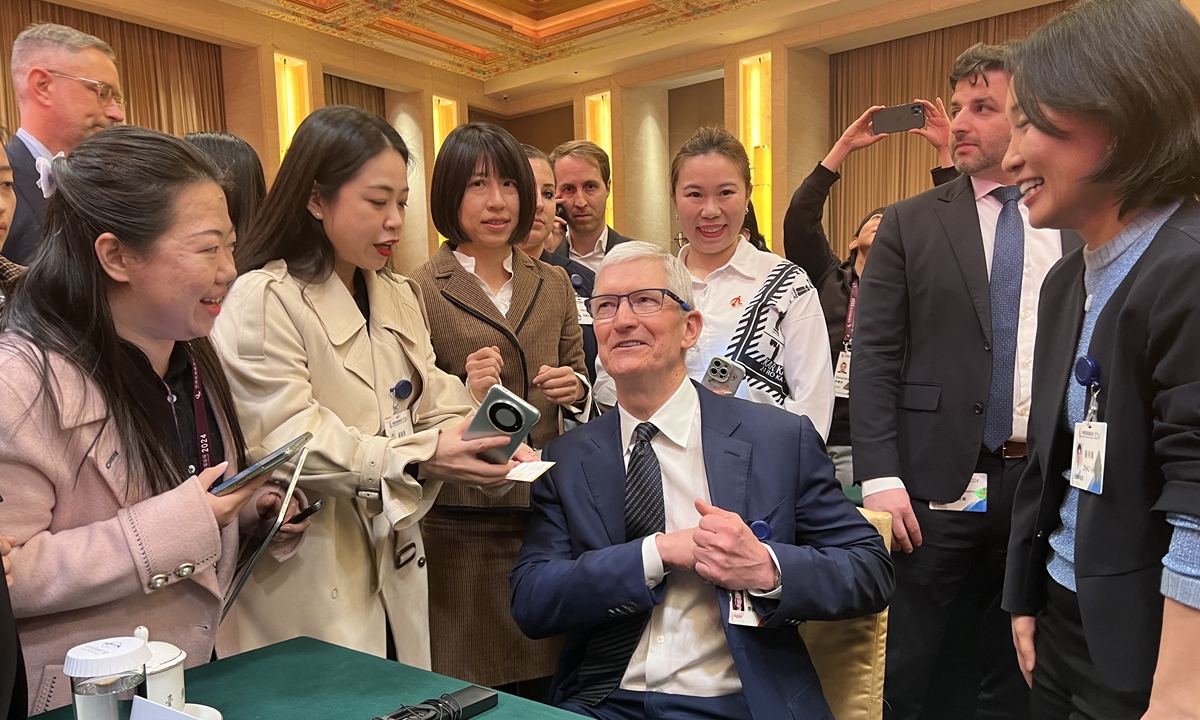
China France Photo:VCG
French businesses have expressed growing confidence in investment in the China market, as a state visit by Chinese President Xi Jinping to France is set to strengthen bilateral ties and economic and trade cooperation.
French direct investment in China has been skyrocketing in recent months, highlighting the great attractiveness of the China market among French companies amid China’s steady opening-up measures, experts said.
The state visit will bolster the confidence of both Chinese and French businesses to pursue win-win cooperation, they noted.
“President Xi’s visit to France reinforces the potential for the two countries to open up a new future of collaboration on the 60th anniversary of bilateral diplomatic ties,” Paul Hudson, CEO of Sanofi, a French multinational pharmaceutical and healthcare company, told the Global Times. “The two countries have opportunities to strengthen their bilateral relationship while also further collaborating to address global topics.”
Hudson said that the company has seen a great expansion in the China market over the past several decades and will continue to expand in China, amid growing potential and the improving business environment.
“As one of the first multinational companies to enter China since its reform and opening-up more than 40 years ago, our footprint has grown significantly over the years as a result of openness and collaboration between our two countries,” Hudson said.
“China staying focused on high-level opening-up and actively improving the environment for foreign investment incentivizes pharmaceutical innovation for patients in China and beyond.”
Sanofi is hardly alone in expanding in the China market. In 2023, France was one of the fastest-growing sources of direct investment in China, with direct investment surging 77 percent year-on-year to $1.34 billion, according to China’s Ministry of Commerce (MOFCOM).
L’Oreal Chairman Jean-Paul Agon also said that the company remains committed to the China market.
“I can assure you that we are more determined than ever to contribute, together, to the mutual development of our two countries. To this end, I believe it is essential to reiterate the imperative need for an ongoing dialogue between us,” Agon said.
That trend has only intensified this year, with French direct investment in China surging 585.8 percent year-on-year in the first two months of this year, data from the MOFCOM showed.
A survey of French companies in China conducted by the French Chamber of Commerce and Industry in China in 2023 showed that members’ willingness to operate in China over the coming three years had increased, with 47 percent saying they planned to further invest in the Chinese market.
French companies are interested in cooperation with Chinese companies in a wide range of areas including pharmaceuticals and clean energy. During the fifth meeting of the China-France Business Council in April 2023, 36 Chinese and French businesses signed 18 cooperation agreements in the areas of green energy, innovation, aerospace and new energy.
“In China specifically, we are bolstering local innovation and investment by prioritizing early-stage [research and development], involving China in 90 percent of our global simultaneous projects,” Hudson said.
The growing commitment of French companies to the China market is mainly due to China’s continuous opening-up measures, efforts to improve the business environment for foreign companies, as well as China’s steady economic recovery and its vast market potential, experts noted.
Cui Hongjian, a professor at the Academy of Regional and Global Governance at Beijing Foreign Studies University, said that the state visit will send a clear signal to French and European businesses that China remains committed to continuous opening-up in an all-round way.
“This will further strengthen the confidence of French businesses and investors in the China market,” Cui told the Global Times on Monday, noting that remarkable growth in French direct investment in China in recent months has already showed growing confidence in China.







